Best Nutrition for Athletes
With the Olympics just around the corner, interest peaks in how elite athletes fuel to perform the incredible work they do. As nutrition is very individualised, each athlete’s fuelling regime will look a little different. This depends on various factors including their sport, their individual requirements, food preferences, and training load. With this in mind, let’s take a look at some of the key nutrients Olympic athletes will be including in their diet and why.
Plenty of carbohydrate
Carbohydrates act as the body’s preferred primary fuel source. When we consume carbohydrates, they get converted to their stored form called glycogen which we store and use as glucose for fuel during exercise. It’s important that glycogen stores are optimal/regularly topped up during exercise at the elite level so our body can perform at it’s best. The type of carbohydrate consumed will differ depending on whether it’s pre, during or post exercise.
- Pre-exercise: before exercise we want to prioritise carbohydrates that are readily available and lower in fibre, to minimise any gut symptoms during the event. If consuming 2-4+ hours prior to an event, common carbohydrate sources may include bread, pasta, potato, rice, noodles, and cereal. If consuming within 1 hour of the event then preferred options tend to be foods such as fruit, muesli bars, fruit juice, sports drinks, lollies, rice crackers, pretzels and energy gels.
- During exercise: during exercise it’s important to choose quick, low fibre, easy to digest carbohydrate sources. Common foods and drinks athletes will typically consume during their sporting event include energy gels, sports drinks, lollies, white bread sandwiches with jam/honey, and energy bars.
- Post exercise: post training it’s important to replenish glycogen stores to assist with recovery. This is a time where some higher fibre options can be incorporated (providing the athlete isn’t exercising again within 2-4 hours). Athletes will often utilise options mentioned above but also include some higher fibre carbohydrates such as wholegrain bread, wholemeal pasta, brown rice and quinoa.
Protein
Protein is important for building and repairing muscle tissue. Protein isn’t typically consumed in large amounts soon before or during sports events but is very important post-event to assist with recovery. Protein requirements are higher for Olympic athletes due to the sheer volume of training they do. Protein food sources include lean meat, chicken, fish, tofu, milk, yoghurt, legumes and eggs. Food sources are always beneficial as they come with the benefit of additional nutrients in those foods. However, protein supplements such as protein powders and protein bars are commonly used as a convenient way to boost protein intake.
Fluid
Hydration is extremely important for Olympic athletes. Dehydration is well known to negatively impact exercise performance, so it’s important for athletes to go into events well hydrated and replenish fluid losses during and post event. During sports events hydration requirements are typically 150-300ml per hour, however this isn’t always achievable. We want to try top up hydration using both water and sports drinks (containing carbohydrates and electrolytes) during the event, then replace fluid losses by 1.5x the amount lost. For example, if an athlete lost 1kg of fluid during their event, they should be aiming to replace this with 1.5L fluid within ideally four hours of finishing the event.
While the nutritional strategies employed by Olympic athletes are finely tuned to their individual performance needs, everyday athletes and health-conscious individuals can also benefit from personalised nutrition planning. At Verde Nutrition Co., we understand that each person’s health journey is unique. We’ve developed a tailored approach to nutrition that not only supports athletes at all levels but also complements General Practitioners‘ treatments and recommendations. Whether you’re training for a personal best or simply striving to improve your overall health, partnering with Verde can help you achieve your health and wellness goals with precision and care.



